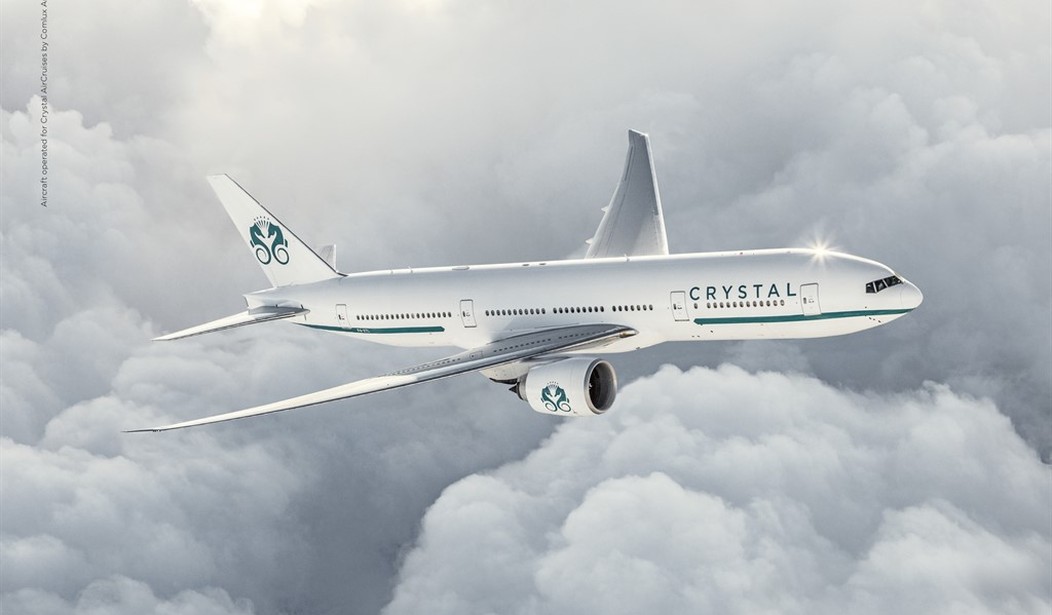Editor's note: this piece was coauthored by Linnea Lueken and H. Sterling Burnett
Life sure is sweet for today’s global elites.
They blame problems they create on the working class. Then they impose rules and costs on the hoi polloi to solve said problems, which conveniently don’t apply to themselves. And, to top it off, they have the audacity to label themselves virtuous.
A perfect example of this abject hypocrisy was reported in the Irish Times this week. The paper notes that the European Union is considering a new minimum tax on aviation fuel to fight climate change by making it more expensive to travel—at least for average folks. It seems the EU commissars in Brussels believe that they and their globetrotting friends should be exempted from the tax.
Specifically, the EU is considering exempting cargo flights and private jet operators from onerous aviation fuel taxes, even though private jets emit more than 40 times as much carbon per passenger as commercial flights.
Yet, the people whose travels emit more of the dreaded carbon dioxide on a per capita basis, those who jet off in private planes to receive awards for their work saving the unwashed masses from climate change, are exempted from the tax. These people are the wealthiest of the wealthy, those who can most afford to pay more for the jet fuel filling their luxury jets’ tanks. Yet it is the poor, not them, who will be paying more. I guess we might call this “The Klaus Schwab exemption,” “the Prince Charles exemption,” “the Bill Gates exemption,” “the Nancy Pelosi exemption,” “the Mark Zuckerberg exemption,” or the “John Kerry exemption.”
Recommended
Kerry, President Biden’s climate czar, once told a reporter who questioned why he took a private jet to a conference where he was receiving an award for his work on climate change, “it’s the only choice for a person like me.” In other words, Kerry meant, “I’m important, so my climate sins don’t count.” Indeed, an examination of the flight logs for Kerry’s private jet conducted by Fox News found that he spent more than 20 hours in the air during the previous year, emitting 25 times more carbon dioxide on these trips alone than the average passenger vehicle emits in a year.
Politicians, businessmen, and all who can afford to fly private, however, would not be taxed on their “dirty” jet fuel, whereas people traveling on commercial flights would be paying more to get home to see their family on holidays, or to attend a funeral, or when they head to or from school.
More bad news for the masses stems from the fact that the draft plan doesn’t specify what the “final rate” could end up being. What the plan does indicate is that the minimum tax on poor travelers would increase gradually over a 10-year period.
Allegedly, the tax is intended to make airlines switch to “sustainable” fuels, which are six to 10 times more expensive than normal aviation fuel. Like other schemes dreamed up by global elites to force a switch to supposedly green energy, this presents a catch-22 for non-elites—just because you make the normal fuel cost more does not mean the “greener” alternative costs less.
If the tax is implemented, the result will be that flying commercial will become even more expensive, perhaps prohibitively so, for common folk—and the elites are more than happy with that.
Here’s a novel idea: How about the EU and other governing bodies considering similar taxes, impose the aviation fuel taxes on private jets or mandate that they only be run on so called green fuels? Make the wealthy pay their “fair share” to fight climate change, rather than making average folks bear the burden.
Elites claim, of course, people (excluding them, evidently) need to make sacrifices in order to save the planet from catastrophic climate change, driven by our CO2 emissions. Because aviation is a large emitter, it makes seems to sense to go after it. However, real-world data does not show that climate change is an existential—or even major—threat.
When travel was shut down almost entirely during the throes of the COVID-19 pandemic, there was not even a noticeable blip in the rise of atmospheric CO2 concentration as measured at Mauna Loa. There is no reason to suspect taxing average working families on their air travel, while exempting the rich and powerful on theirs, would reverse this.
What is good for the goose is good for the gander; if it’s vital to the health of the planet that we tax aviation fuel (it’s not), then it makes absolutely no sense that private jets and cargo flights should be excluded. Unless, of course, it’s not about saving the planet at all.
Linnea Lueken (llueken@heartland.org) is a research fellow with and H. Sterling Burnett, Ph.D., (hsburnett@heartland.org) is the director of the Arthur B. Robinson Center on Climate and Environmental Policy at The Heartland Institute.
























Join the conversation as a VIP Member